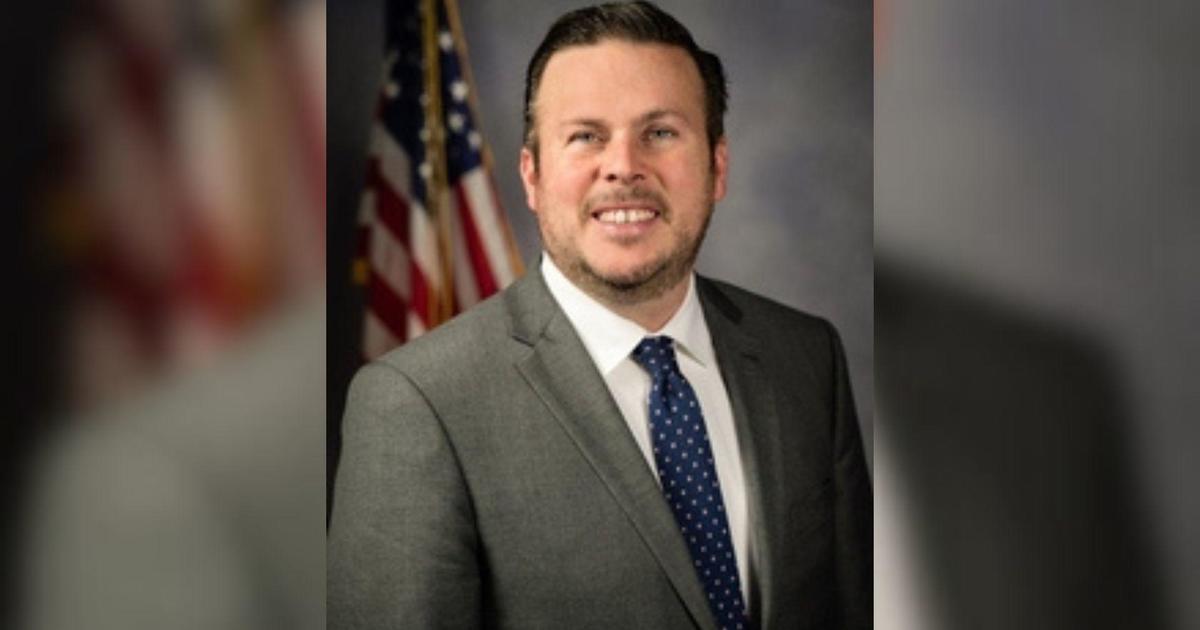Angie's List: Appliance Maintenance & Repair
By Jim Donovan
PHILADELPHIA (CBS) -- Most appliances hum along doing their thing for a decade or more --- but sometimes they fail years before they should. In this week's Angie's List, Jim Donovan shows you some things you should be doing to keep them running smoothly.
Like so many things, appliances are likely to last longer with basic maintenance.
"So dust off your appliance's owner's manual to determine what needs to be taken care of. Do you need to inspect the hoses on a washing machine, clean the dryer vent, for example," said Angie's List founder, Angie Hicks.
And when it comes to your dishwasher, make sure you clean the filter of debris and don't overload it with soap. It can affect your pump. When it comes to your refrigerator, watch out for that ice maker.
"We go out often to repair icemakers. It's important to recall and notice if you have a power outage. A lot of people don't realize if their power goes out your ice will begin to melt over time in the icemaker and when the power comes back on it will refreeze that ice around the auger and when you go to request ice that auger will try to rotate and can break," said appliance repair contractor, Gary Miller.
If your appliance should fail a typical service call should run between 60 and 100 dollars.
"The parts and the labor are going to be in addition to that. But keep in mind, many service companies will deduct that service call fee if you hire them to do the work, so don't be afraid to ask," said Hicks.
But before you spend too much keep this in mind, if the repairs will be more than half the cost of a new appliance and your unit is more than 6 or 7 years old, you may be better off getting a new one.
Angie's List Appliance Do's and Don'ts
Your refrigerator/freezer:
· DO clean the condenser coils. It's an easy vacuum cleaning job for most of us and will help the fridge run efficiently. Built-ins might require a service call.
· DO check the seal. If it's not tight, you're losing efficiency and not keeping food properly chilled. Close the door on a thin sheet of paper and if the paper slips, your fridge is wasting energy. Replace the seal or adjust the door latch if needed.
Your dishwasher:
· DO clean your dishwasher's filter to remove particles and debris. Filter locations vary depending on the model, so check your owner's manual if you can't find it.
· DO use the right amount and type of soap. Your owner's manual will advise you. Going wrong here will affect your pump. Powdered soap tends to work better than liquid.
Your garbage disposal:
· DON'T stuff the disposal full of food waste and then turn it on.
· DO run cold water for 10 seconds before feeding in small bits of waste, keep the water running as you feed in the waste and for 30 seconds after it disappears.
Your oven:
· DO check your oven's temperature gauge. An easy way to do this is to bake a cake by exactly following the directions on a basic mix. If the cake isn't perfectly baked, you may need a service call to fix the oven.
· DON'T use the self-cleaner before important meals. Self-cleaning cycles require ovens to run at extremely high temperatures and often cause the oven's electronic components to fail. Most highly rated repair specialists say it's better to clean up spills when they occur and to use drip pans than to rely on the self-cleaner.
Your washing machine:
· DON'T stuff too many clothes in the machine. Overloading your unit will cause it to prematurely wear out.
· DO set the water level at the appropriate setting for the amount of clothes being washed or you damage the washer's motorized components.
· DO empty pockets and put lingerie in mesh bags before washing: Repair specialists report finding all sorts of small items in the guts of machines that would have spun happily for years. Among the troublemaking items: bra under wires, golf tees, baby spoons and coins.
· DO replace washer fill hoses every five years.
Your clothes dryer:
· DO clean the vent with every load. A clogged vent will slow down the dry-time of your cycle and increase the potential for a dryer fire.
· DO have the outside vent (exhaust duct) inspected annually and cleaned yearly. Most cleanings cost less than $100 and can make your dryer run as good as new.
Angie's List tips for appliance repair:
· Read your owner's manual: Maintenance required for your appliance will depend on the manufacturer so follow the recommended guidelines. Whenever you perform extensive maintenance work on your appliances, take the necessary safety precautions. Shut off electrical and gas lines when working on them. Consult an appliance repair professional for major maintenance/repairs.
· Always do your homework: Get at least three estimates and compare the bids based on labor, parts, and warranty. If required, check to see if the company is licensed.
· Appliance repair costs: Expect to pay between $60 and $100 for a diagnosis. Parts and labor will add to the price if repair is required, but many companies will deduct the cost of the diagnosis if you hire them to do the work.
· Do you warranty your work? Ask how long the company guarantees its work before you make a hiring decision. Warranties on labor can vary significantly from company to company - typically 30 to 90 days - and the warranty for parts can vary depending on the manufacturer.
· When to replace? If an appliance repair will cost more than half the cost of the new appliance and the unit is more than six or seven years old, you're probably better off replacing it with a newer model. If you need to replace an appliance and are putting it out to the curb to be taken away, remember to remove doors to prevent children from inadvertently locking themselves inside the appliance.



